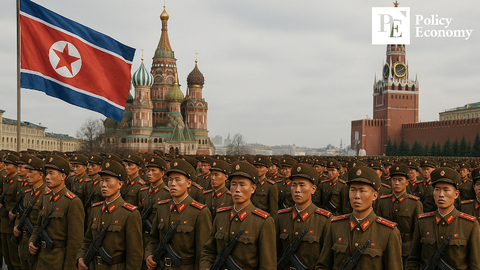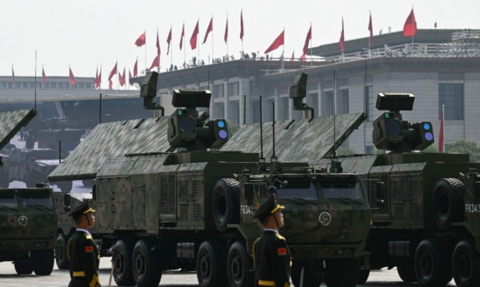Germany at a Crossroads: Political Shifts, U.S. Tariffs, and the Future of Transatlantic Relations"
Input
Changed
Economic and Political Consequences of the Election The Effect of U.S. Tariffs on German Automobiles The Future of Germany-United States Relations

Economic and Political Consequences of the Election
Friedrich Merz, the leader of the Christian Democratic Union (CDU), has inaugurated a new era of conservative leadership in Germany following the recent federal election, a historic political transition. Merz is the most probable successor to Chancellor Olaf Scholz, as the CDU, in conjunction with the Christian Social Union (CSU), secured approximately 28.5% of the vote. This election not only represents a substantial realignment in the political landscape of Germany but also suggests potential recalibrations in international relations, particularly with the United States.
The election results indicate a significant movement to the right in German politics. The Alternative for Germany (AfD), a far-right party, made a historic comeback by securing second place and doubling its parliamentary seats with approximately 20.8% of the vote. The unprecedented performance has prompted apprehension regarding the increasing influence of far-right ideologies in mainstream politics. Merz, recognizing the significance of this development, characterized the AfD's successes as a "last warning" for mainstream parties, underscoring the importance of addressing the fundamental issues that lead voters to pursue extremist alternatives.
Germany's economy, which has been a dominant force in the European Union for decades, is currently confronted with substantial challenges. Recent data suggests that economic output has continued to lag behind pre-pandemic levels, with a 0.2% contraction in the past year, following a 0.3% decline in 2023. High energy costs, increased global competition, and supply chain disruptions have had a detrimental impact on the manufacturing sector, particularly the automotive industry. This economic decline occurs at a critical juncture, as Germany is also required to reevaluate its international trade policies in response to the escalating tensions with the United States.
Furthermore, Merz has consistently underscored the necessity of Germany's economic resilience by expanding its trade relationships beyond its conventional partners. With the Trump administration's shift toward protectionist policies in the United States, Germany has the opportunity to strengthen its trade relations with the European Union and emergent markets. Nevertheless, Germany continues to be one of the largest beneficiaries of transatlantic trade, necessitating meticulous negotiation in order to transition away from the United States.

The Effect of U.S. Tariffs on German Automobiles
Escalating trade tensions with the United States are exacerbating these obstacles. German industry leaders have expressed their strong opposition to President Trump's administration's proposal to impose tariffs of approximately 25% on car imports. President Hildegard Müller of the German Car Association (VDA) characterized the tariff threat as a "provocation," cautioning that such measures would not only affect German manufacturers but also result in increased prices for American consumers and potential disruptions in the global automotive supply chain.
Germany's economy could be significantly affected by these tariffs, as the nation is heavily dependent on automobile exports. Volkswagen, BMW, and Mercedes-Benz are among the German automobile manufacturers that export a significant number of their vehicles to the United States market. The cost of these vehicles for American consumers would be substantially increased by a 25% tariff increase, which could potentially reduce demand and necessitate German manufacturers to modify their production levels. The automotive industry in Germany is responsible for the employment of more than 800,000 individuals and the contribution of approximately 10% to the country's GDP. The potential consequences of a significant decrease in exports to the United States include the closure of factories, an increase in unemployment, and a more generalized economic downturn.
Additionally, Germany's domestic economy would be further burdened by the prospective decrease in export revenues. Automakers would likely be required to reduce production costs, which could result in a decrease in investment in innovation and sustainability initiatives, as well as an impact on compensation. The European automotive industry is currently in the process of transitioning to the production of electric vehicles (EVs). The imposition of tariffs could potentially impede these advancements by reducing profitability and consumer demand in the U.S. market.
Although the tariffs are intended to safeguard American manufacturers, the repercussions may be detrimental. U.S. consumers have a strong preference for German luxury automobiles, and an increase in tariffs is likely to result in a price increase for models imported from Germany. Furthermore, numerous German automobile manufacturers have established production facilities in the United States, including Mercedes-Benz in Alabama and BMW in South Carolina. The local economies are substantially impacted by the employment of tens of thousands of American workers at these facilities. These operations could be disrupted by heightened tariffs, which could compel German manufacturers to reevaluate their investments in the U.S. market.
Relocating production outside of the United States may result in unintended consequences for American workers if German manufacturers opt to do so in response to increasing costs. The protective intent of these tariffs may be undermined by the potential loss of jobs that are contingent upon the continued success of German auto manufacturers in the United States. Additionally, the European Union may respond with retaliatory measures in response to tariffs on German vehicles, which could exacerbate tensions and undermine economic stability on both parties, given the interconnectedness of global supply chains.

The Future of Germany-United States Relations
The transatlantic relationship is significantly affected by the changing political and economic landscape in Germany. Merz's advocacy for European autonomy implies a potential transition to a more equitable partnership with the United States, in which Europe assumes a larger degree of accountability for its economic and security interests. Although this does not suggest a rupture in the relationship, it suggests a shift toward a more self-sufficient European policy stance.
In order to mitigate losses in the U.S. market, Germany may advocate for more robust EU trade agreements with other global partners, including China and Japan. Furthermore, the European Union may respond by imposing counter-tariffs on American products, which would exacerbate trade tensions and further complicate diplomatic relations.
The implications of trade disputes on Germany-U.S. relations may surpass economic concerns from a geopolitical standpoint. Germany's pursuit of increased autonomy may also result in tensions within NATO's defense and security cooperation. In the past, Germany has depended on U.S. military assistance within the alliance framework. However, recent demands for Europe to assume a more significant role in its own defense may result in a reevaluation of these commitments.
Another factor to take into account is the impact of trade tensions on diplomatic engagement and consumer sentiment between the two countries. If tariffs on German automobiles result in a decrease in American consumer confidence in European products, it could have a long-term impact on the global brand reputation of Germany. Similarly, an extended trade conflict could encourage Germany to establish more robust relationships with Asian economies, potentially altering the balance of economic power in a manner that is not consistent with U.S. strategic interests.
Germany is currently at a juncture, as it navigates a multifaceted interplay of domestic political changes, economic obstacles, and changing international relations. Friedrich Merz and the CDU/CSU's ascension represents a new era in German politics, as they endeavor to reconcile national interests with the needs of a globalized world. The direction Germany takes will have profound implications not only for its citizens but also for the broader global community as coalition negotiations progress and policies take shape.
The resilience of Germany's economy and its relationship with the United States are put to the test by the substantial challenge posed by the U.S. tariffs on German vehicles. These tariffs could potentially erode transatlantic partnership and compel Germany to pursue alternative economic partnerships if they are implemented. Germany's trajectory on the global stage may be determined by the pragmatic approach to transatlantic relations and the emphasis on European unity and self-reliance during this period of transition.
Ultimately, the long-term stability of Germany-U.S. relations will be contingent upon the capacity of both parties to establish a shared understanding of economic and trade policy. The next few months will be crucial in determining the course of this evolving partnership, and diplomacy will be essential in preventing a full-fledged trade war.





















